Sponsored by Shanghai Nonlinear Science Society, hosted by China University of Mining and Technology (Huaxia), Jiangsu Industrial and Applied Mathematics Society, Fudan University Institute of Intelligent Complex Systems, Fudan University School of Mathematical Sciences, Shanghai Mathematical Science Center, Fudan University Institute of Mathematical Finance The co-organized 10th Shanghai International Symposium on Nonlinear Science and Applications (Shanghai NSA'24) was successfully held from July 22 to July 27, 2024 at the China University of Mining and Technology in Xuzhou, Jiangsu Province, China. This seminar was funded by the Shanghai Nonlinear Science Center and the National Natural Science Foundation of China.

Nonlinear science is one of the most prominent research fields and the most active scientific frontiers in this century. Shanghai NSA'24 is committed to promoting the development of this important scientific research field. The topics of the symposium cover most directions in nonlinear science and are designed to promote broad interaction among researchers from different disciplines interested in nonlinear science and related technologies. The symposium provides an excellent opportunity for experts and newcomers from different research backgrounds to review the latest advances and developments in the field of nonlinear science and to exchange their experiences, advances, and ideas.
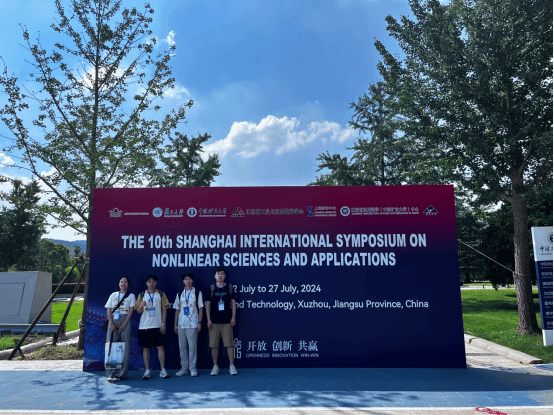
The workshop included plenary talks and six days of parallel sessions. Many key members of Fudan University's Hypercomplex Network Science and Intelligent Systems Laboratory were invited to attend the conference and gave academic reports at multiple sub-forums, showing the latest research results. The academic report of Chen Qihang, a direct PhD candidate, was titled "Integrated Crew Planning Optimization in Multi-Line Urban Rail Transit Systems Considering Workforce Heterogeneity", which systematically discussed the optimization of crew planning in multi-line urban rail transit systems considering labor heterogeneity.
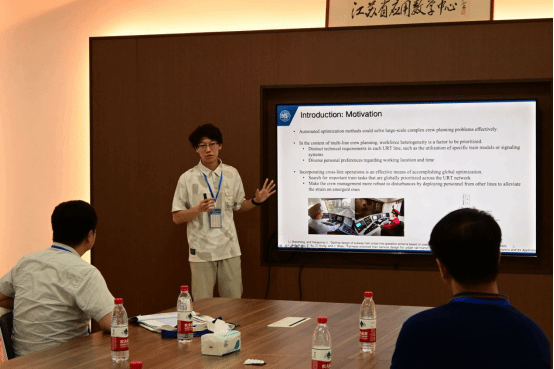
Master student Gui Wangzhe's report was titled "Cascading Failure and Recovery Model of Subway Network Considering Resource Allocation and Passenger Evacuation", which studied the cascading failure and recovery model of the subway network considering resource allocation and passenger evacuation.
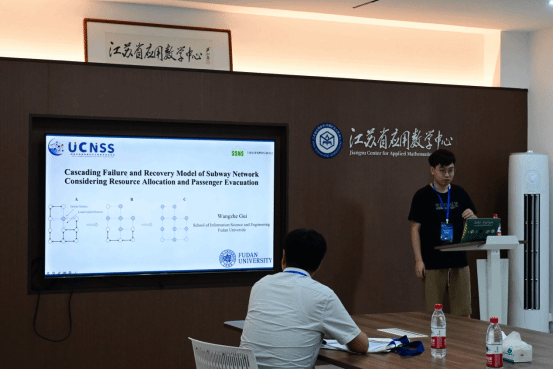
Ren Zhiwen, a master's student, gave a report titled "A Review of EEG Dataset-Based Brain Network Construction and Classification", reviewing research on brain network construction and classification based on EEG data sets.
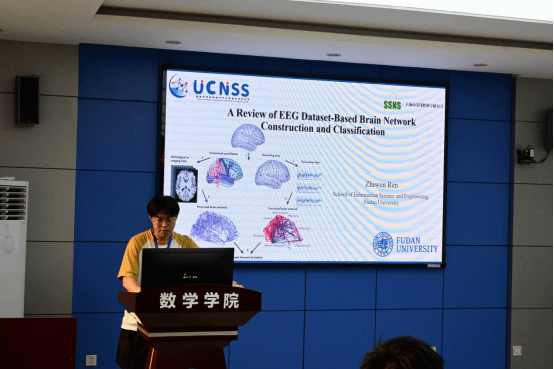
The academic report "The Influence of Complex Shock Conduction on Economic Systems and Their Evolutionary Laws of Causal Emergence" by Zhang Xu, a doctoral candidate in the class of 2024, explored the impact of complex shock conduction on the economic system and its causal evolution laws.
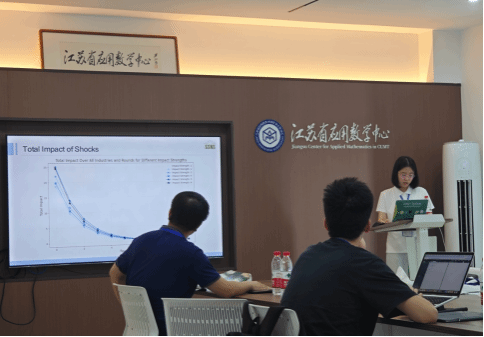
Luo Kaiming, a doctoral candidate in the class of 2024, gave a report titled "Effects of Uncommon NonIsochronicities on Remote Synchronization", which studied the impact of non-synchronicity on remote synchronization.
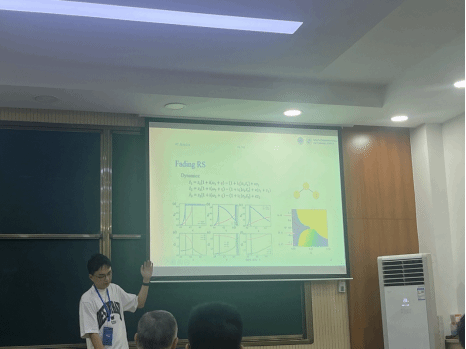
After each report, the audience actively participated in questions and discussions. After Chen Qihang’s report, the questions raised by the audience mainly focused on the practical application of multi-line urban rail transit systems and the efficiency of optimization algorithms. Chen Qihang answered various questions in detail and explained the applicability and potential improvement directions of his research model. Gui Wangzhe’s report aroused the participants’ strong interest in subway network security and passenger evacuation strategies. Many of the questions raised during the discussion session received in-depth responses from Gui Wangzhe, and triggered a lively discussion on future research directions. Ren Zhiwen’s report enabled experts in the field of neuroscience and data science present to discuss EEG data analysis technology and network construction methods. His research methods and conclusions have been widely recognized. The reports of Zhang Xu and Luo Kaiming aroused strong interest among scholars in the fields of economics and physics, and their theoretical research and practical application prospects were highly praised and discussed enthusiastically.
The successful convening of the seminar injected new vitality into the development of nonlinear science and its applications, and laid a solid foundation for future research and cooperation in related fields.
Fudan University's Hypercomplex Network Science and Intelligent Systems Laboratory focuses on complex network dynamics and its applications, complex network models and big data analysis, AI+ smart city key technologies and demonstrations, and cutting-edge research at the intersection of network dynamics and machine learning. The key researchers of the laboratory have given wonderful academic reports at every network science forum, and relevant results have also been published in top international and domestic magazines. At the same time, based on theoretical research results, the laboratory has successfully applied the intelligent construction technology and platform software of smart city cyber-physical fusion systems, providing an effective way for the rapid construction and continuous evolution of new smart city application systems, which can accelerate my country's new smart cities The pace of construction will improve the quality of complex open systems in smart cities, greatly saving construction costs and thus generating greater economic benefits. The laboratory took the lead in issuing a national industry standard, authorized more than ten invention patents, and obtained more than ten software copyrights. The laboratory has trained many outstanding graduates and won the honorary titles of Shanghai Outstanding Graduates and School Outstanding Graduates.
